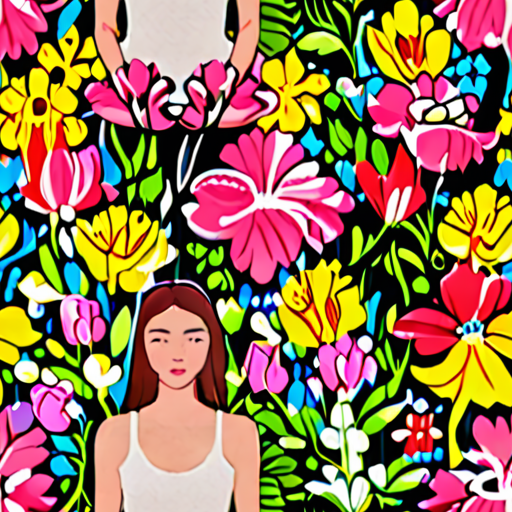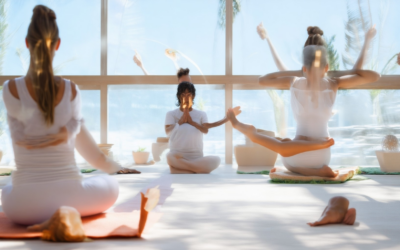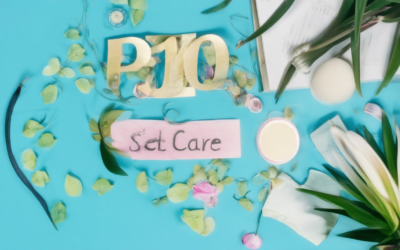Living a life filled with purpose, energy, and vitality is within reach when you adopt positive lifestyle changes. By making conscious decisions about how we live our lives, we can break free from unhealthy habits and cultivate a sense of well-being that radiates from the inside out. From the food we eat to the way we exercise, every choice we make has the power to either hinder or help us achieve our goals. In this comprehensive guide, we’ll explore the essential components of a healthy lifestyle, providing actionable advice and expert insights to empower you to make lasting positive changes in your life.

7 Positive Lifestyle Factors
As someone who values overall well-being, I’ve identified seven essential lifestyle factors that can significantly impact our health and happiness.
-
Nutrition and Healthy Eating Habits
A well-balanced diet rich in whole foods, fruits, vegetables, and lean proteins is crucial for maintaining optimal health. Aim to consume a variety of colors on your plate to ensure you’re getting a broad spectrum of nutrients.
For more information on healthy eating habits, check out our article on Nutrition Tips for a Healthy Lifestyle .
-
Regular Exercise and Physical Activity
Engaging in regular physical activity can help reduce stress, boost mood, and increase energy levels. Aim for at least 30 minutes of moderate-intensity exercise per day, such as brisk walking, cycling, or swimming.
Learn more about the benefits of exercise and how to incorporate it into your daily routine in our article on The Importance of Exercise for Mind and Body .
-
Stress Management and Relaxation Techniques
Effective stress management is vital for maintaining mental and emotional well-being. Explore various relaxation techniques, such as meditation, deep breathing, or yoga, to find what works best for you.
Discover more stress-reducing strategies in our article on Stress Management Techniques for a Happier You .
-
Quality Sleep and Rest
Adequate sleep is essential for physical and mental restoration. Aim for 7-9 hours of sleep per night and establish a consistent bedtime routine to improve sleep quality.
Learn more about the importance of sleep and how to improve your sleep hygiene in our article on The Benefits of Quality Sleep for Your Health .
-
Social Connections and Relationships
Nurturing strong social connections and relationships is critical for emotional support and overall well-being. Prioritize spending quality time with loved ones and engage in activities that bring you joy and connection.
Explore ways to strengthen your relationships and build meaningful connections in our article on Building Stronger Relationships in the Digital Age .
-
Mental Stimulation and Learning
Engaging in mentally stimulating activities, such as reading, puzzles, or learning a new skill, can help keep your mind sharp and prevent cognitive decline.
Discover more ways to challenge your mind and stay engaged in our article on The Importance of Mental Stimulation for Brain Health .
-
Gratitude and Positivity Practices
Cultivating gratitude and positivity can have a profound impact on your mental and emotional well-being. Practice daily gratitude exercises, such as journaling or sharing three things you’re thankful for with a friend or family member.
Learn more about the benefits of gratitude and how to incorporate it into your daily life in our article on Practicing Gratitude for a Happier Life .
Good Lifestyle Changes
As someone who values overall well-being, I’ve learned that making positive lifestyle changes can have a significant impact on my health and happiness.
-
Healthy Eating Habits
I’ve found that incorporating more fruits, vegetables, whole grains, and lean proteins into my diet has helped me feel more energized and focused throughout the day.
Some of my favorite healthy food options include leafy greens like kale and spinach, berries, and nuts like almonds and walnuts.
For meal ideas, I recommend checking out Epicurious for delicious and nutritious recipes.
-
Regular exercise not only helps me stay physically fit but also reduces stress and anxiety levels.
I aim to engage in at least 30 minutes of moderate-intensity exercise per day, whether it’s going for a walk, jog, or bike ride, or practicing yoga or Pilates.
For workout inspiration, I love following fitness influencers on social media platforms like Instagram and TikTok.
-
Mindfulness and Self-Care
Practicing mindfulness and prioritizing self-care has been instrumental in managing my mental health and overall well-being.
This includes activities like meditation, journaling, and spending quality time with loved ones.
For mindfulness exercises and guided meditations, I recommend checking out apps like Headspace and Calm.
-
Getting Enough Sleep
Adequate sleep is essential for physical and mental restoration, and I strive to get at least 7-8 hours of sleep each night.
To improve sleep quality, I try to establish a consistent bedtime routine, avoid screens before bed, and create a relaxing sleep environment.
For sleep tips and recommendations, I suggest visiting the National Sleep Foundation website.
-
Staying Hydrated
Drinking plenty of water throughout the day is crucial for maintaining physical health and cognitive function.
I aim to drink at least eight glasses of water per day and limit my intake of sugary drinks.
For hydration tracking and reminders, I use apps like Waterlogged and Hydro Coach.
-
Reducing Stress
Engaging in stress-reducing activities like deep breathing, progressive muscle relaxation, and visualization has helped me cope with anxiety and pressure.
I also prioritize setting realistic goals and deadlines, taking regular breaks, and seeking support from friends and family when needed.
For stress management techniques and resources, I recommend visiting the American Psychological Association website.
By incorporating these good lifestyle changes into my daily routine, I’ve noticed significant improvements in my overall health, mood, and productivity.
Remember, small steps can lead to big changes, so start with what feels manageable and gradually work towards making healthier choices.
For more tips and advice on achieving a balanced lifestyle, check out our blog posts on Live On Blogs .

10 Tips for a Healthy Lifestyle
I’m passionate about sharing my knowledge on how to live a healthy lifestyle, and I’ve compiled a list of my favorite tips to share with you.
-
Nourish Your Body
Eating a balanced diet is essential for maintaining a healthy body. Focus on consuming whole foods, fruits, vegetables, lean proteins, and whole grains. Aim to limit your intake of processed and sugary foods.
-
Stay Hydrated
Drinking plenty of water is crucial for flushing out toxins and keeping your skin looking its best. Aim to drink at least eight glasses of water per day, and consider increasing your intake if you’re physically active.
-
Get Moving
Regular exercise can help boost your mood, increase energy levels, and reduce stress. Find an activity you enjoy, whether it’s walking, running, swimming, or dancing, and aim to do it for at least 30 minutes per session.
-
Practice Mindfulness
Mindfulness is the practice of being present in the moment and fully engaged with your surroundings. Try incorporating mindfulness exercises into your daily routine, such as meditation or deep breathing.
-
Get Enough Sleep
Aim to get seven to nine hours of sleep per night to help your body repair and recharge. Establish a consistent bedtime routine and create a relaxing sleep environment to promote better sleep.
-
Manage Stress
Stress can have a negative impact on your physical and mental health. Try incorporating stress-reducing activities into your daily routine, such as yoga or reading.
-
Build Strong Relationships
Social connections are vital for our emotional and mental well-being. Make time for friends and family, and prioritize building strong relationships.
-
Prioritize Self-Care
Taking care of yourself is essential for maintaining a healthy lifestyle. Make time for activities that bring you joy and relaxation, such as taking a bath or getting a massage.
-
Set Boundaries
Setting boundaries is essential for maintaining a healthy work-life balance. Learn to say no to commitments that don’t align with your values or priorities.
-
Seek Professional Help
If you’re struggling with your mental or physical health, don’t hesitate to seek professional help. Consult with a healthcare provider or therapist to develop a personalized plan for achieving optimal health.

What Are the Six Positive Lifestyle Choices?
As someone who values living a balanced and fulfilling life, I’ve identified six essential positive lifestyle choices that can have a significant impact on our overall well-being.
- 1. Prioritizing Self-Care
- 2. Cultivating Mindfulness
- 3. Building Resilience
- 4. Nurturing Relationships
- 5. Embracing Gratitude
- 6. Pursuing Personal Growth
Self-care is not just about pampering ourselves, but also about taking care of our physical, emotional, and mental health. This includes getting enough sleep, exercising regularly, eating a balanced diet, and practicing stress-reducing activities like meditation and yoga.
Mindfulness is the practice of being present in the moment, fully engaged with our thoughts, feelings, and surroundings. By cultivating mindfulness, we can reduce stress, increase productivity, and improve our relationships with others.
Resilience is the ability to bounce back from adversity, and it’s essential for navigating life’s challenges. We can build resilience by developing coping skills, setting realistic goals, and surrounding ourselves with supportive people.
Nurturing relationships with family, friends, and community is vital for our emotional and mental well-being. By investing time and effort into building strong connections, we can create a support network that helps us navigate life’s ups and downs.
Practicing gratitude involves focusing on the good things in our lives, rather than dwelling on negative thoughts. By cultivating a sense of gratitude, we can shift our perspective, appreciate what we have, and live a more joyful and fulfilling life.
Pursuing personal growth involves learning new skills, challenging ourselves, and exploring new interests. By embracing lifelong learning, we can stay curious, motivated, and inspired, leading to a more purposeful and meaningful life.
7 Ways to Maintain a Healthy Body
The key to a happy and productive life.
-
Nutrition and Diet
A well-balanced diet rich in fruits, vegetables, whole grains, lean proteins, and healthy fats is essential for maintaining overall health. Aim to eat a variety of colors on your plate to ensure you’re getting a broad range of nutrients. Consider consulting with a registered dietitian or nutritionist to develop a personalized meal plan that meets your needs.
Some great resources for learning more about nutrition and diet include:
- Academy of Nutrition and Dietetics
- Journal of the Academy of Nutrition and Dietetics
-
Regular Exercise
Engaging in regular physical activity can help reduce the risk of chronic diseases, improve mental health, and boost energy levels. Aim for at least 150 minutes of moderate-intensity exercise or 75 minutes of vigorous-intensity exercise per week. Find activities you enjoy, whether it’s walking, running, swimming, cycling, or dancing, and make them a part of your routine.
For more information on exercise and physical activity, check out these resources:
- Centers for Disease Control and Prevention (CDC)
- American Heart Association
-
Stress Management
Chronic stress can have negative effects on both physical and mental health. Engage in stress-reducing activities such as meditation, yoga, deep breathing exercises, or spending time in nature. Prioritize sleep and aim for 7-9 hours per night to help regulate stress hormones.
Learn more about managing stress with these resources:
- Mayo Clinic
- Anxiety and Depression Help
-
Hydration
Drinking enough water is essential for maintaining proper bodily functions, including digestion, circulation, and temperature regulation. Aim to drink at least eight glasses of water per day, and consider increasing your intake based on your individual needs and activity level.
Learn more about hydration with these resources:
- Water.org
- National Sanitation Foundation
-
Sleep and Rest
Aiming for 7-9 hours of sleep per night is crucial for physical and mental restoration. Establish a consistent sleep schedule, create a relaxing bedtime routine, and optimize your sleep environment to promote better rest.
Learn more about sleep and rest with these resources:
- National Sleep Foundation
- Centers for Disease Control and Prevention (CDC)
-
Mental Health
Prioritizing mental health is just as important as physical health. Engage in activities that bring you joy, practice self-care, and seek support from loved ones or professionals when needed.
Learn more about mental health with these resources:
- National Institute of Mental Health
- Psychology Today
-
Self-Care
Make time for activities that nourish your mind, body, and spirit, such as reading, taking a relaxing bath, or practicing gratitude. Prioritize self-care and make it a non-negotiable part of your daily routine.
Learn more about self-care with these resources:
- Self Care Magazine
- HuffPost Self-Care

What is a Healthy Positive Lifestyle?
A healthy positive lifestyle encompasses various aspects that contribute to overall well-being, including physical health, mental well-being, and emotional resilience.
-
Nutrition
Eating a balanced diet rich in whole foods, fruits, vegetables, and whole grains can significantly impact our overall health and energy levels.
Focus on consuming lean proteins, healthy fats, and complex carbohydrates to fuel your body and support optimal functioning.
Limit processed foods, added sugars, and saturated fats, which can negatively affect your health and increase disease risk.
Stay hydrated by drinking plenty of water throughout the day, aiming for at least eight glasses daily.
-
Physical Activity
Regular exercise is essential for maintaining physical health, reducing stress, and boosting mood.
Incorporate a mix of aerobic exercises, strength training, and flexibility activities into your routine, such as walking, jogging, cycling, weightlifting, and yoga.
Aim for at least 150 minutes of moderate-intensity exercise or 75 minutes of vigorous-intensity exercise per week.
Find activities that bring you joy and make exercise feel less like a chore, whether it’s dancing, swimming, or hiking.
-
Mental Well-being
Prioritize self-care and engage in activities that promote relaxation and stress reduction, such as meditation, deep breathing, or reading.
Practice gratitude by reflecting on the things you’re thankful for each day, no matter how small they may seem.
Connect with loved ones, friends, and community members to build strong relationships and a support network.
Seek professional help when needed, whether it’s therapy, counseling, or coaching, to address mental health concerns.
-
Sleep and Relaxation
Aim for 7-9 hours of sleep each night to allow your body to repair and recharge.
Create a bedtime routine to signal to your brain that it’s time to wind down, such as taking a warm bath, practicing gentle stretches, or listening to soothing music.
Establish a consistent sleep schedule and create a sleep-conducive environment, free from distractions and noise.
Take breaks throughout the day to relax and recharge, whether it’s through a short walk, some stretching, or a power nap.
Conclusion
A healthy positive lifestyle is a holistic approach that incorporates various aspects of physical, mental, and emotional well-being.
By focusing on nutrition, physical activity, mental well-being, and sleep and relaxation, you can cultivate a lifestyle that promotes overall health, happiness, and fulfillment.
Remember, every small step counts, and making sustainable changes takes time and patience.
Start by incorporating one or two new habits into your daily routine and gradually work towards a healthier, happier you.




0 Comments